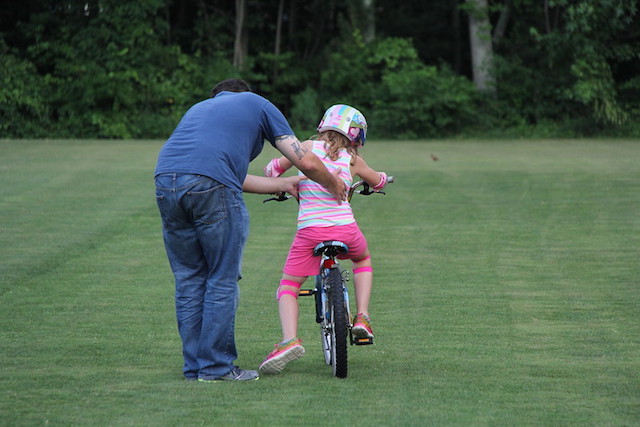Unlock the Magic in Your Story Now
Get the Free 20 questions to Ask Before Launching Your Idea workbook when you sign up for occasional updates.
Get the Free 20 questions to Ask Before Launching Your Idea workbook when you sign up for occasional updates.
Articles filed in: Story Skills
The Story Advantage
filed in Marketing, Story Skills, Storytelling

How can we get more attention for our idea?
How can we increase brand awareness?
How can we make people notice our work?
These are the questions I am often asked by the people and companies in search of a message that will give them a competitive advantage.
I don’t need to tell you that getting more eyeballs on your work won’t get any easier. Every day new businesses are launched and more videos, podcasts, articles and books are published. There will never be less competition for people’s attention than there is today.
But I’d argue that getting attention and building awareness are misguided goals. Fulfilling careers and thriving businesses are built on more than being noticed. And that’s good news for all of us.
We don’t need to go in search of some elusive message that might gain fleeting awareness. We already have an inherent competitive advantage—our unique, true stories about our life and our work. Those stories, well told, enable us to share messages that build strong ties with the people we hope to serve.
Our goal must always be to do what it takes, not just to be seen—but to matter. We don’t have to manufacture a message to get more attention, we have to create more affinity by getting better at saying what’s true.
If you want to get better at telling your stories, please consider joining us for the upcoming Story Skills Workshop.
Image by Clem Onojeghuo
Storytelling Is A Skill You Can Learn
filed in Marketing, Story Skills, Success

Do you remember the first time you rode a bike without training wheels? You might recall who taught you and the street you were on. The colour of the bike. The exact moment you took off. The wobbling, the delight, and cheering as you pedalled away.
One minute you couldn’t do it and the next minute you were off. You had acquired a new skill and the confidence to keep practising—so you got better and better at it.
Learning to tell your story is a lot like learning to ride a bike. There are basic principles and tools you can use to get started, and the more you practice the better you get. Story skills are essential for people like you who want to make their ideas matter.
That’s why I’ve been working with Seth Godin for almost a year to create a workshop that will help you to discover, craft and tell better stories.
The Story Skills Workshop launches next week.
Sign up here to be notified when registrations open.
Image by Eli Christman
Worthy
filed in Story Skills, Strategy, Success

If you’re reading this post, it’s because it got past one or more of your filters. Maybe you were anticipating receiving it because you subscribed to my blog. Perhaps it popped up in your search results. Either way, you’re here because you chose to be—not just because I reached out to you.
The people you’re trying to reach and resonate with are filtering too. From the contacts you try to add on LinkedIn, to the clients you’re hoping to attract. They are deciding who is worthy of their permission and their time.
So the question for you and me is not just how do we get past the filters, but how do we become worthy of the limited time and attention of the people we want to matter to?
Image by JM Thomson
It’s Not For You
filed in Story Skills, Strategy, Success

‘It’s not for you,’ are four of the most powerful, yet hardest, words you can say, no matter what you have to share, sell or serve.
It takes courage not to be for everyone or to close the door on what at first glance looked like an opportunity.
But when you’re brave enough to put a stake in the ground, you will find your right people. Those people who you can help. The ones who will show up, ready to act—the people who would miss you.
The flip side, of course, is that you need to recognise your people. Those who you can confidently tell, ‘This is exactly what you’ve been looking for.
We do work that matters when we know who we want to matter to.
Image by Yelp
Effective Change
filed in Marketing, Story Skills, Strategy
 Even though nine of her children emigrated to England in the 1960s to find work, my grandmother never travelled outside Ireland.
Even though nine of her children emigrated to England in the 1960s to find work, my grandmother never travelled outside Ireland.
She refused to taste cucumber, even though my English aunt insisted on making cucumber sandwiches whenever she came to visit.
Even after her doctor told her cigarettes were bad for her angina. Granny still smoked forty cigarettes a day, until the day she died of a massive heart attack.
My Granny didn’t see herself as the kind of person who would get on a boat or try food she’d never eaten. And her enjoyment of smoking outweighed the downsides in her eyes.
Changemaking isn’t as simple as taking someone on a journey to something different. Effective change engages someone in the act of being the kind of person they want to be.
When you know who your people want to become, you can tell a more relevant and resonant story.
Image by Tiago Murano
Make Your Customer The Hero
filed in Story Skills, Storytelling
 Most marketing makes the company the hero.
Most marketing makes the company the hero.
Most companies go to great lengths to prove that their product is better.
Most marketer’s main aim is to close the sale.
The most effective marketing makes the customer the hero.
Beloved brands show people who they can become in the presence of their product.
The best marketers give people something to believe in, not just something to buy.
Image by Monica Leonardi
Better Marketers Show And Tell
filed in Marketing, Story Skills, Strategy
 Every day, we sell ourselves in adjectives that sell us short.
Every day, we sell ourselves in adjectives that sell us short.
Leader, expert, communicator, specialist, efficient, experienced, better, faster, cheaper.
We’ve forsaken the effort of showing, for the convenience of telling.
There is a better way.
Don’t just tell us about the features and benefits of your product.
Show us how that product changed the lives of the people who used it.
Don’t just tell us about the services you offer.
Show us how you helped your client achieve the outcome they dreamed of.
Don’t just tell us about your skills and expertise.
Show us the impact those skills had on someone or something.
Your work matters. Show us why.
Image by Susan Jane Golding
Earning A Competitive Advantage
filed in Marketing, Story Skills

The German restaurant in our neighbourhood closed its doors after a year in operation. The chef’s reputation and inventive menu were not enough to draw sufficient numbers of customers to make it viable.
We knew it was only a matter of time before another owner took over the lease. And sure enough, last weekend we saw a new coffee machine installed and the tables and chairs being delivered.
There are six cafes selling great coffee and a decent brunch within a hundred metres of this one. So, what does the owner believe her competitive advantage will be?
Few new businesses have an unassailable advantage—one that makes them the only choice for a prospective customer. Most don’t make measurably superior products or own proprietary software. They haven’t patented a secret formula, and they don’t necessarily have more resources or talent than the next company.
Successful companies don’t expect to start out ahead of the game on day one. They plan to earn an advantage over time, by knowing who they want to serve, and how—then building on their strengths to tell the story that matches their ideal customer’s worldview.
And when they do, they give their customers a story to tell, compounding their advantage as they go.
Image by Valberg Larusson
On Being Valued
filed in Marketing, Story Skills, Strategy

A graphic designer works for decades to master the tools of her trade. Not just the design programs and fonts she uses, but her discernment, her eye and her empathy—the intangibles that clients value in the end result. Things the designer doesn’t add as line items on her invoice.
Value creation isn’t only about what’s exchanged in a transaction—the logo, the sandwich or the software. Value is more than the usefulness of things. Value is about utility and desirability.
If we want to be valued for both the skills that differentiate us and the work that brings us joy, then we must find ways to articulate that value to our customers. Better stories create value.
Image by Ionut Coman
